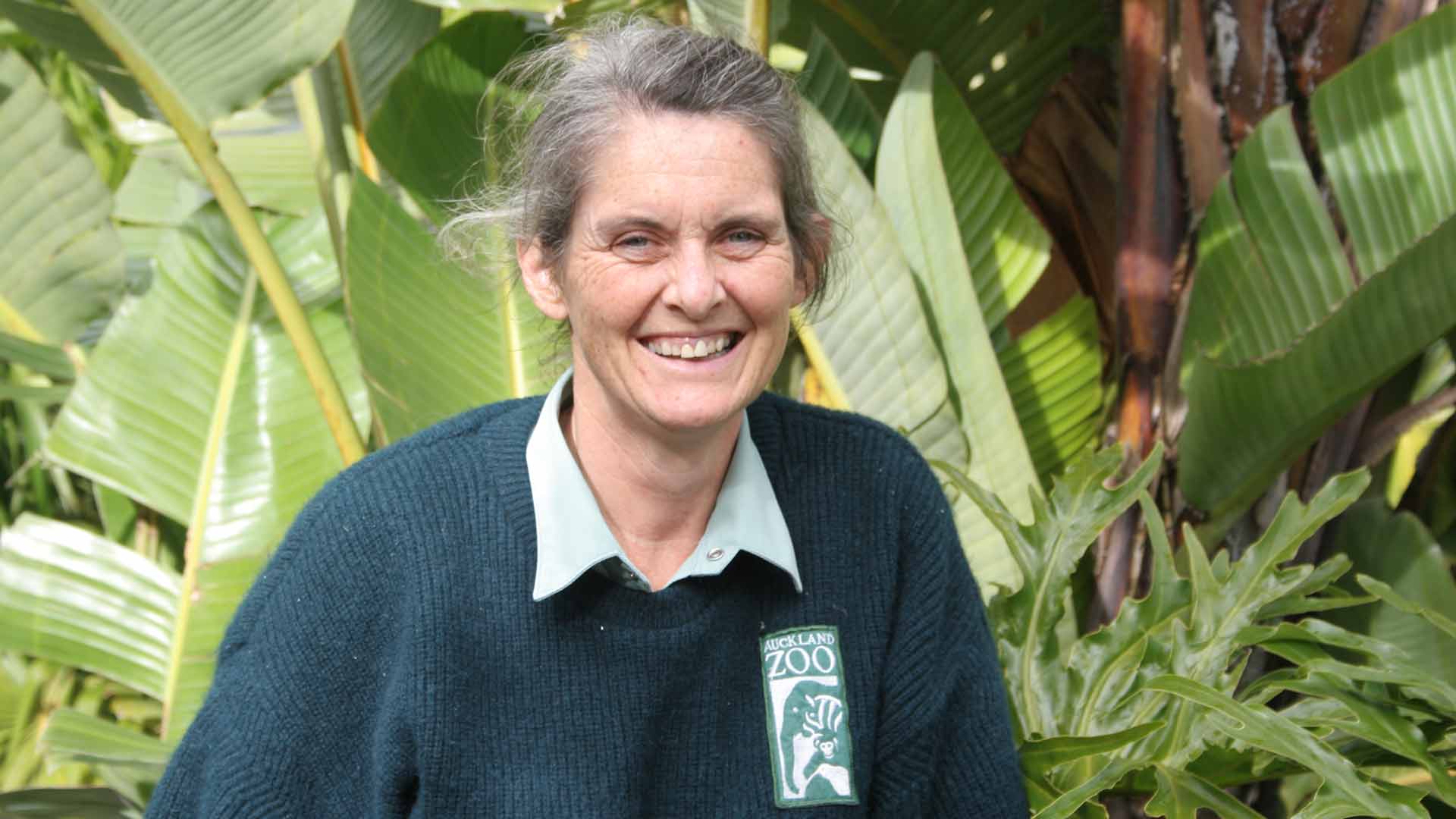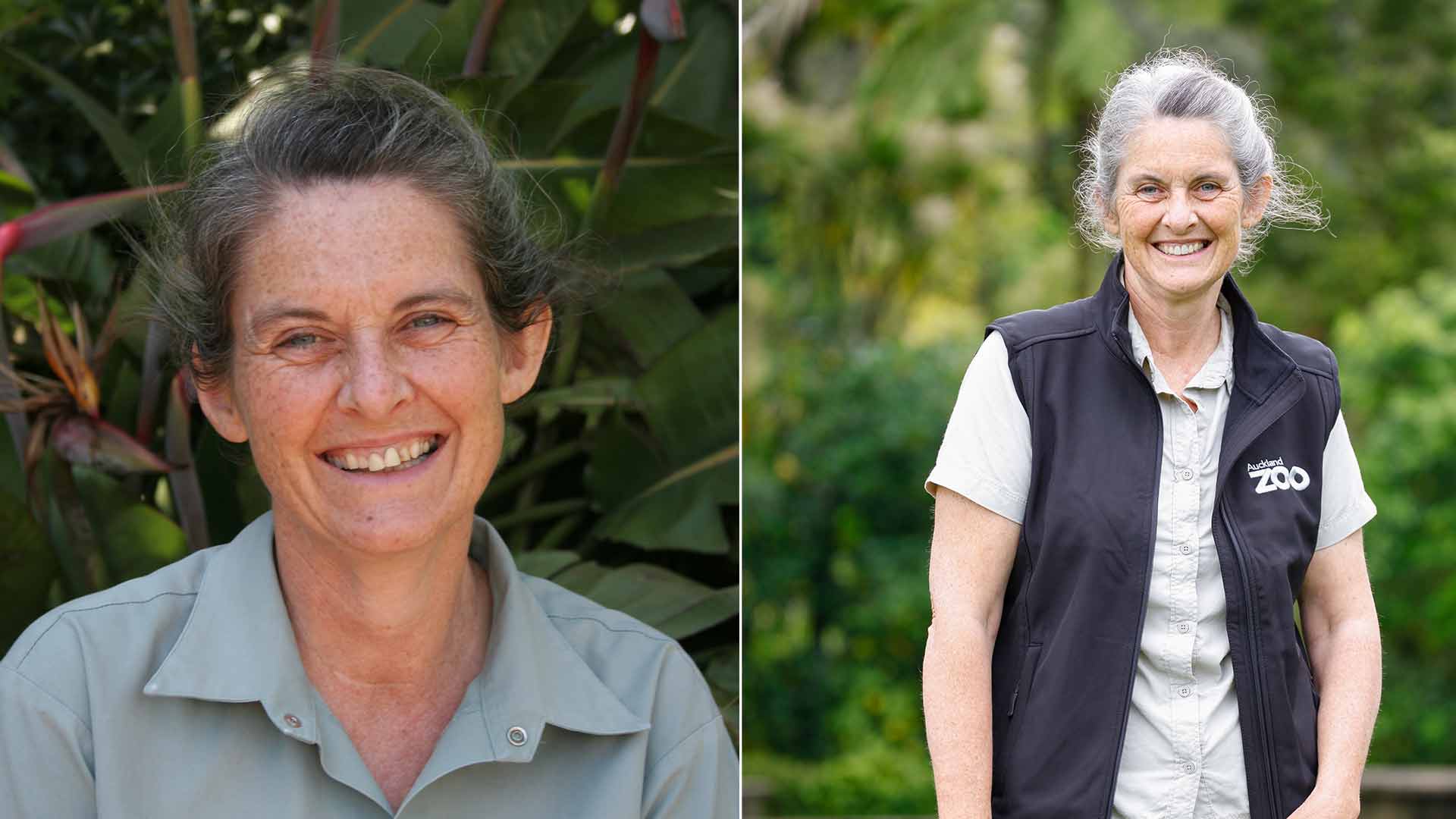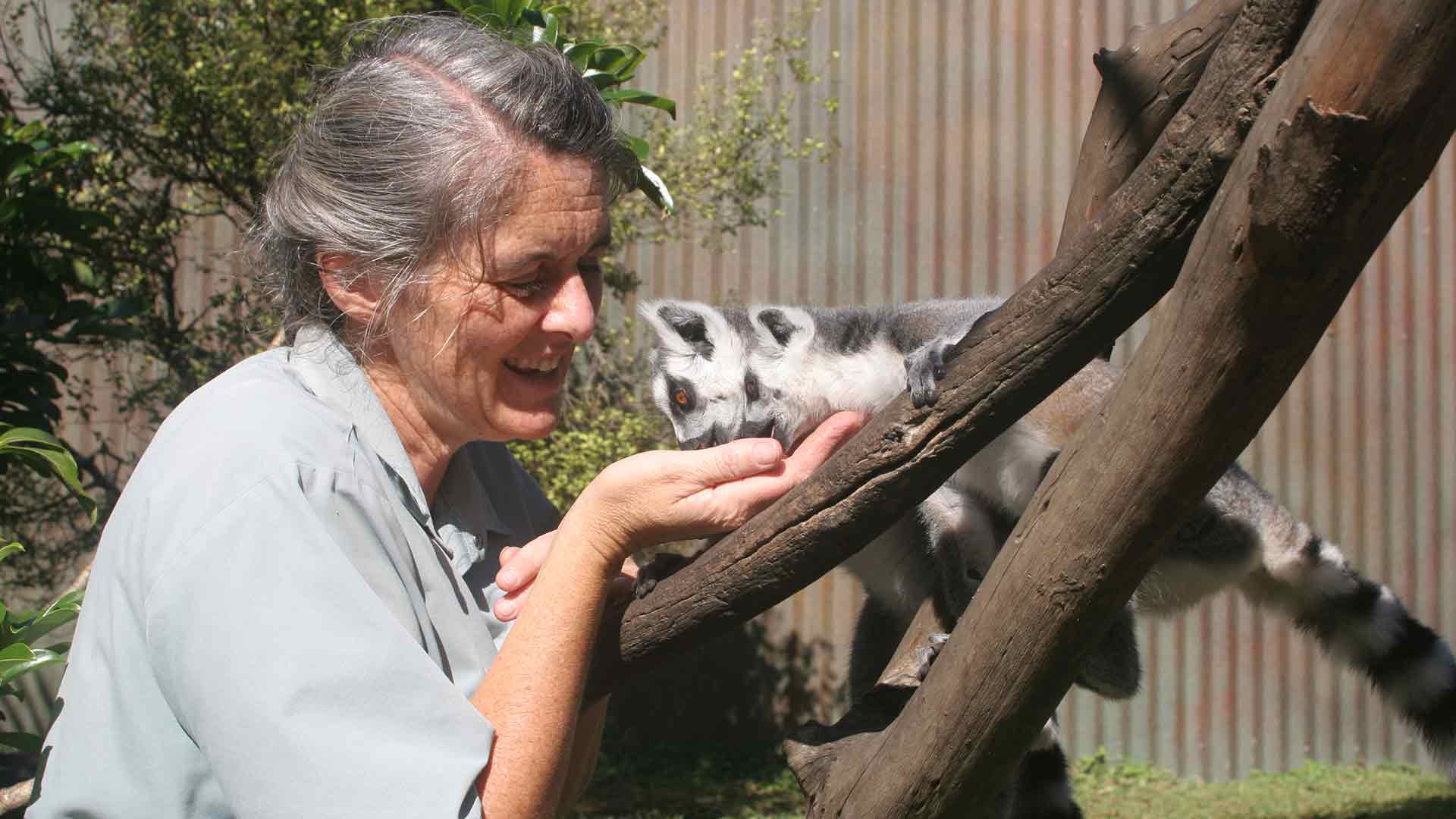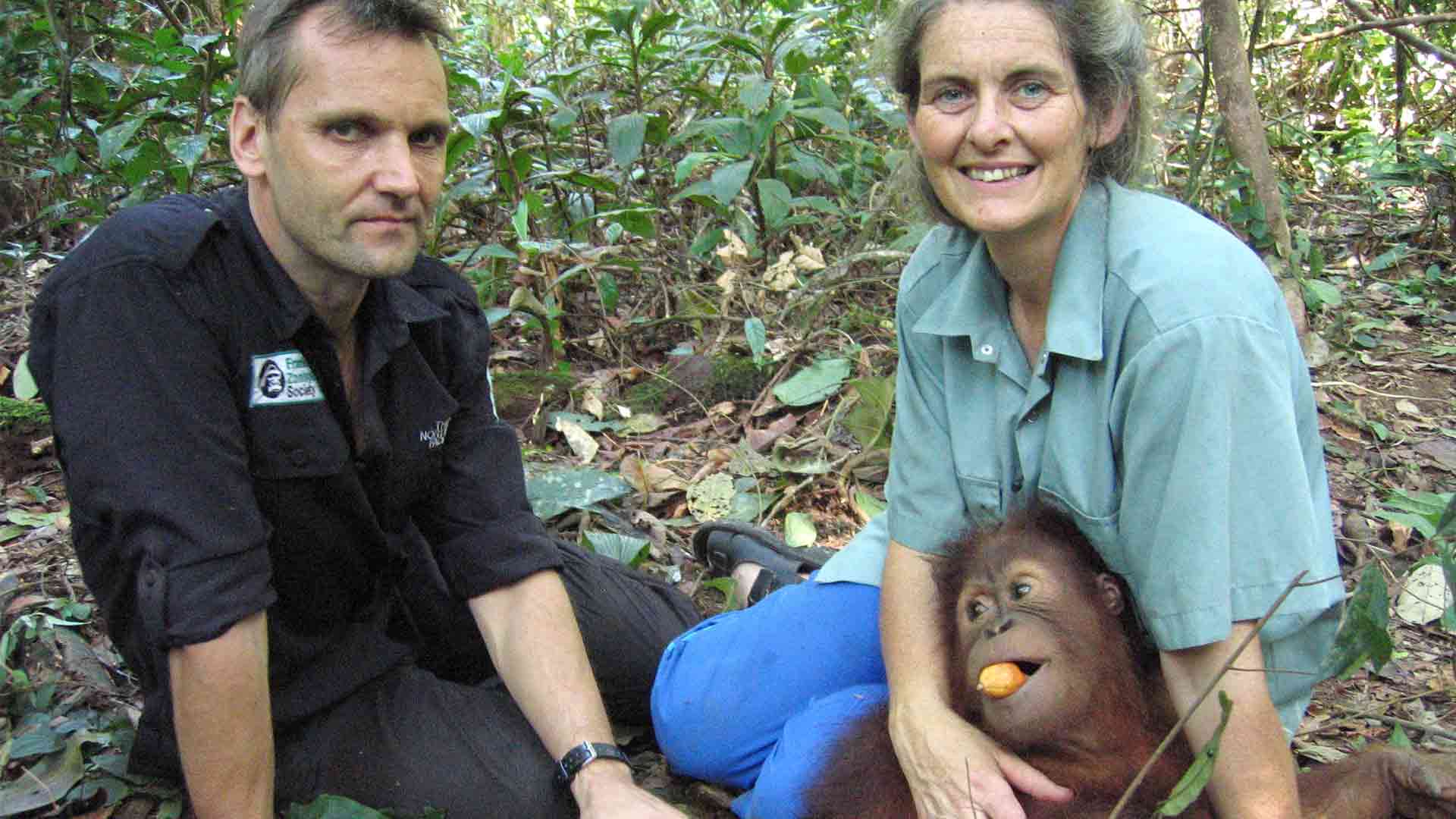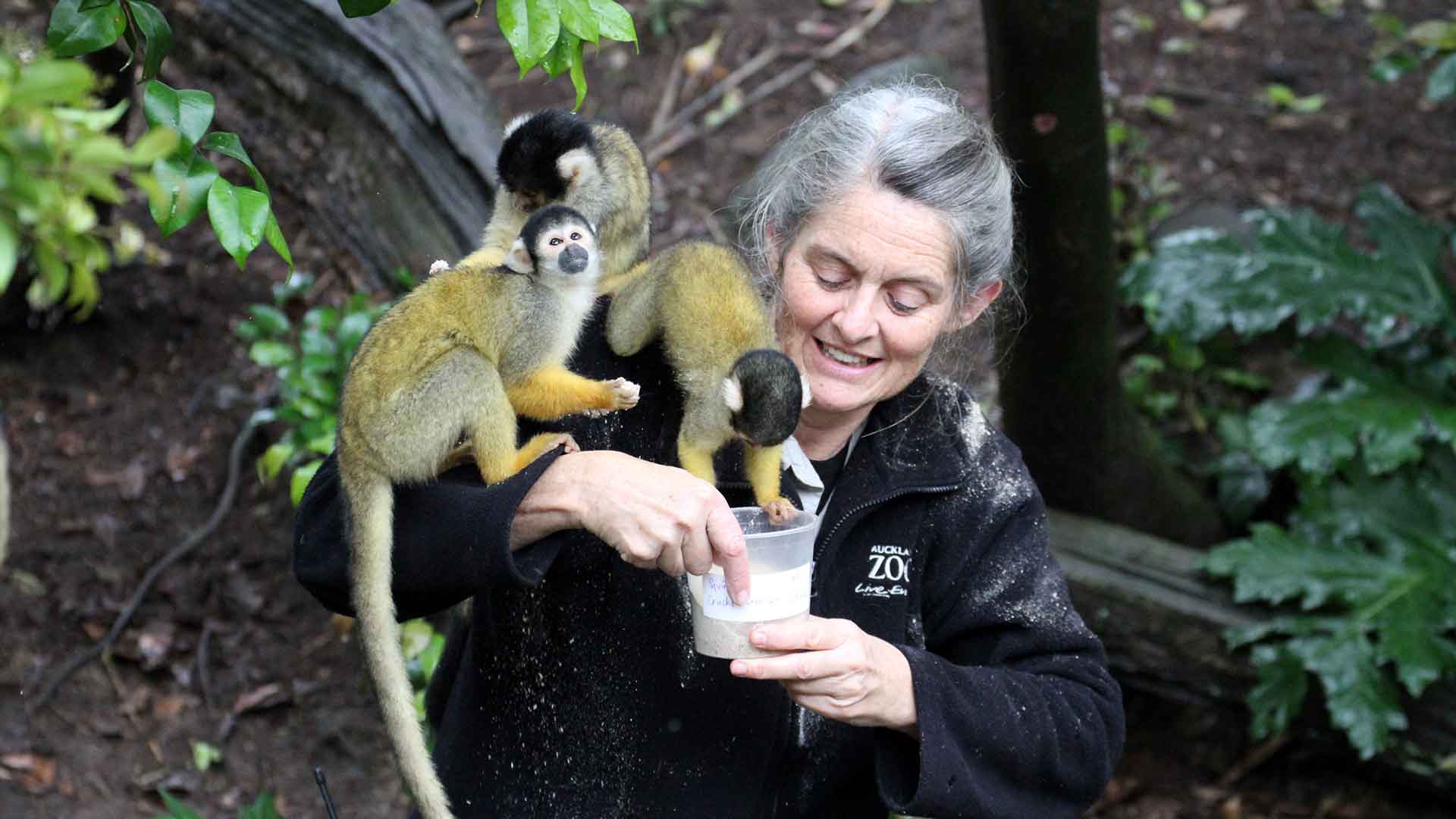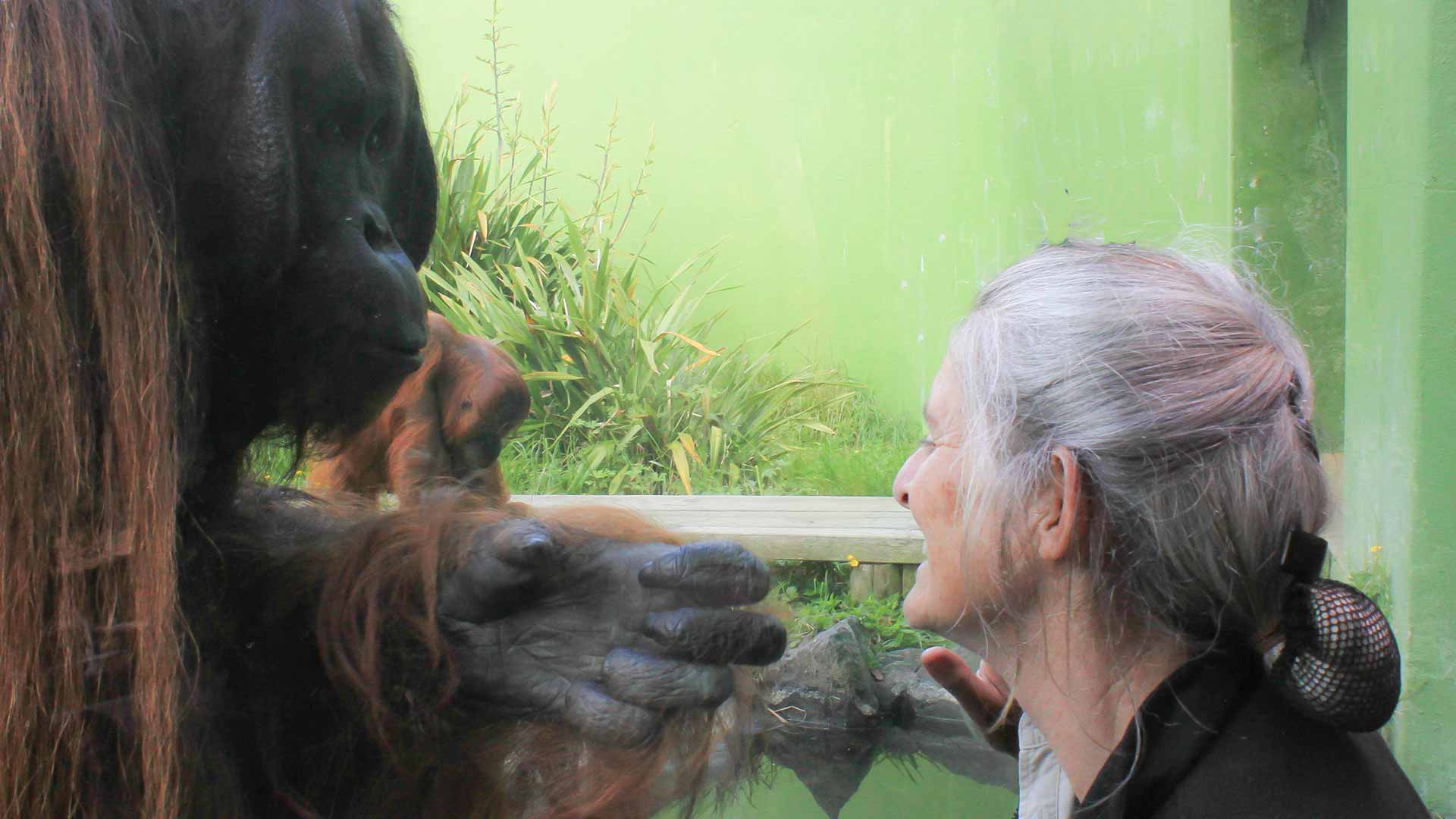Born and raised in Auckland, Christine knew she always wanted to work with animals – but not in a farm or veterinary capacity. She had her sights set on the more ‘wild’ side of the spectrum. After completing school at the age of 17, Christine interviewed for a position at Auckland Zoo. She was not offered the role but was offered advice by curator-at-the-time, Graham Meadows, who suggested she go and gain valuable experience.
Christine went on to train as a Karitane childcare nurse; a decision she feels has come back to help her as a primate keeper.
“Looking after children translates brilliantly into looking after animals. Neither can talk, only communicate in their own way – something you have to spend a great deal of time learning so you can understand the best way to care for them.”
As well as nursing, Christine was attending night classes at Unitec for the Captive Wildlife course – a course that still runs to this day (for all you budding wildlife enthusiasts!) Her gained experiences and education prompted a call from Graham Meadows - one she says was unexpected but one that left her flattered.
“He told me an opening had come up and that he thought I’d be right for it. Of course, I said yes, but I never thought I’d get it.”
When asked why she felt this way, Christine explained that in 1979, the industry was very male-dominated and females were not always granted the same level of respect as males in the workplace.
“Women were called ‘girls’ if they asked for help and although we knew there was nothing wrong with being female or asking for a hand, others didn’t always share the same mentality.”


